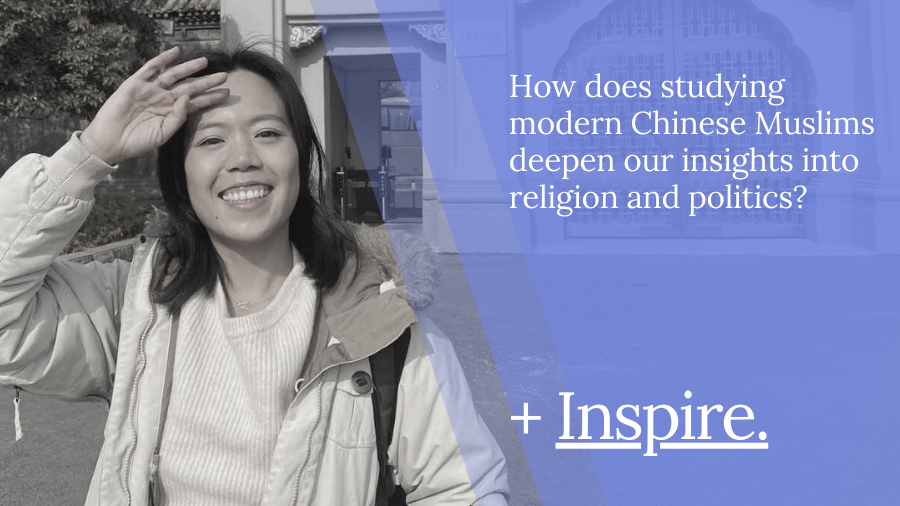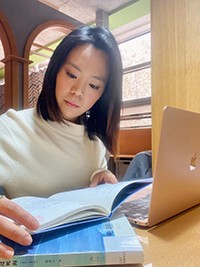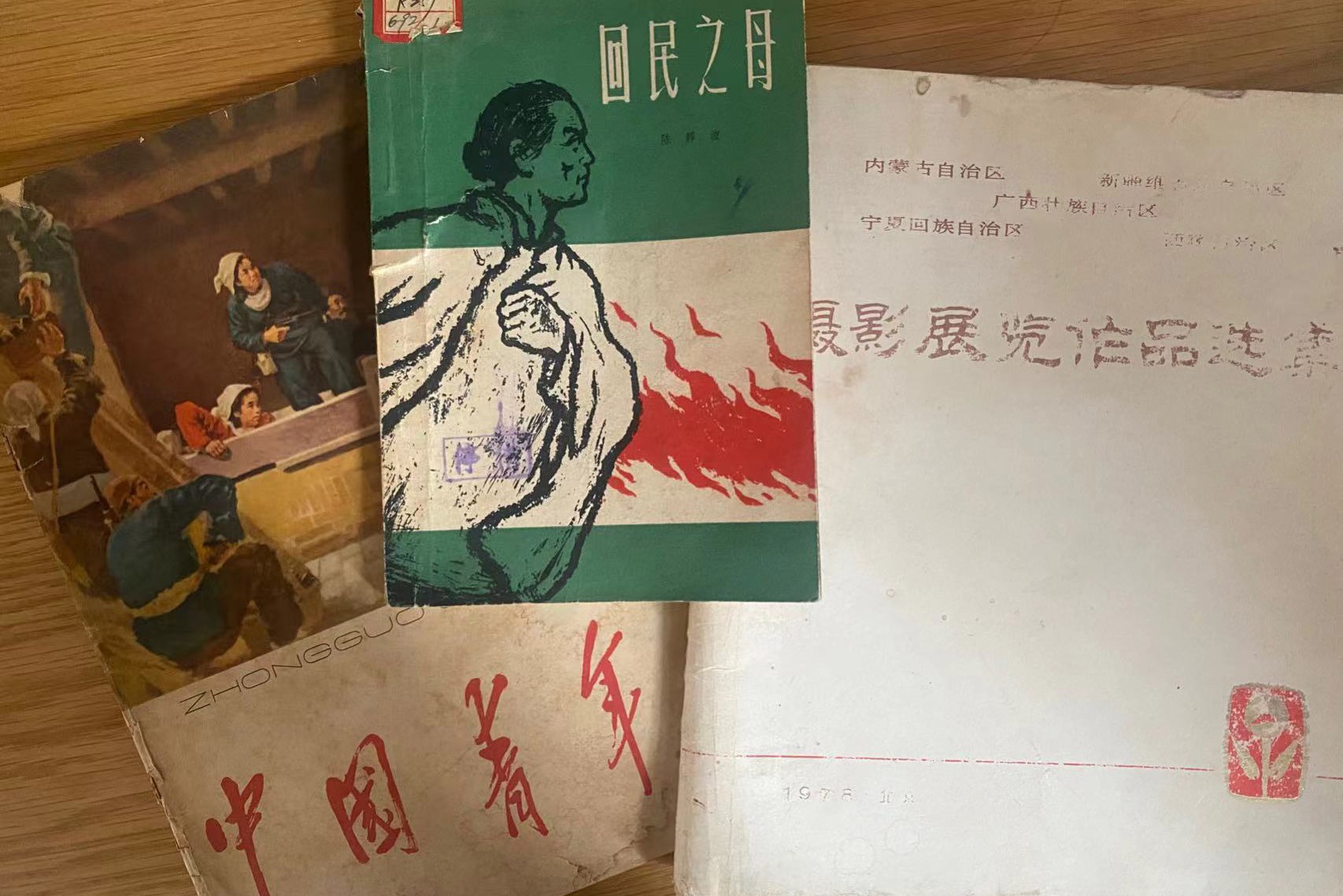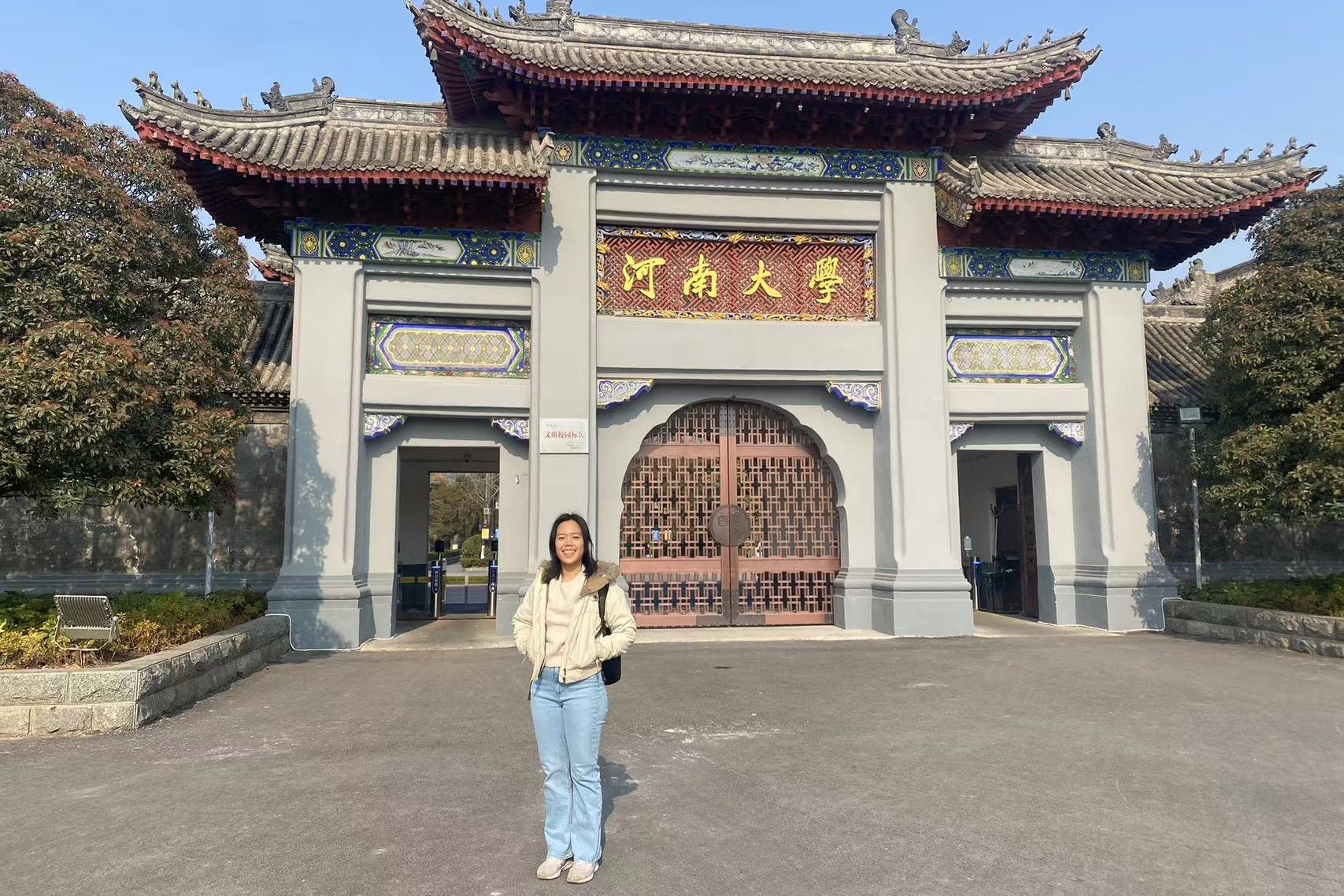Scholar Explores the Beyond Borders Influence of Chinese Muslims in the Arab World
Joanna Lee, a Columbia Ph.D. student, shares insightful reflections on her residency experience at the Beijing Global Center.

Tell us about your research interest and why you were drawn to it.
In 2015, I stumbled across a copy of Zhang Chengzhi’s History of the Soul at Columbia's library. It was beautifully bound in leather, and I later learned it was the 2011 edition that Zhang had published to raise funds for Palestinian refugees. I was so drawn to the text that I wrote my undergraduate thesis on it.
Zhang’s magnus opus opened me to the world of Chinese Islam, which I began exploring earnestly when I started my Ph.D. I discovered a tradition of Chinese Muslim intellectuals who, like Zhang, were deeply invested in the emancipation of oppressed people across the world.
RELATED CONTENT
My dissertation explores the intellectual production of Chinese Muslims in the modern world and their cultural exchanges with the Arab world. I interrogate the relationship between Islamic modernism, Third World internationalism, and global socialist modernity in twentieth-century China and beyond.
What brought you to Beijing, and what are you currently working on?
Beijing is the intellectual and cultural center of China. Being in Beijing allowed me to access central archives, such as the Beijing municipal archives and the National Library of China’s rich periodicals collection, as well as build connections with scholars in China.
In addition to the Beijing Global Center's Scholar-in-Residence program, I was also hosted by Tsinghua University, which helped me connect with some of the brightest minds in China and allowed me to attend many conferences and dialogues with scholars from all around the world.

Finally, as a major city in China, Beijing offers convenient options for traveling to other parts of China. While based in Beijing, I was able to visit other major research sites in Henan, Yunnan, the Northwest of China.
While in Beijing, I worked on a paper about the discursive mobility of Chinese Muslims across Chinese and Egyptian state media, which was presented at the Association for Asian Studies 2024 conference in Seattle. I am currently working on a chapter of my dissertation, which centers around Zhang Chengzhi's reprinting of the 2011 edition of History of the Soul.
Can you talk about how the Scholar-in-Residence program helps you expand your research and learning footprints?
The Scholar-in-Residence program helped me navigate life in Beijing and provided me with connections for obtaining necessary resources.
With the Beijing Global Center's invaluable assistance, I was able to secure a year's worth of free accommodation and gain privileged access to Beijing's extensive research archive. This access provided me with the opportunity to delve into a wealth of rare and fascinating books from the prestigious Peking University and Tsinghua University, which further enriched my research experience. The Center also provided me with a working space for writing and meeting with other scholars.

Intellectuals should live in and integrate themselves into the places that they are writing about. This is a matter of epistemological responsibility.
As a scholar of Chinese studies who was not trained in China, I needed to spend an extended time there. The Scholar-in-Residence program provided me with this opportunity. After spending two semesters here, I have deepened my engagement with Chinese culture and thought at a level that surpasses anything I could have possibly gained through rigid book learning.
What's your academic and professional plan after this program?
I am returning to Egypt this summer to continue unfinished archival work and Arabic language studies. I am committed to returning to China later in the year to continue the fieldwork that I began conducting in the Northwest of China this Spring.

Who are the artists (directors, writers, or photographers) that have inspired you?
Zhang Chengzhi continues to be my greatest inspiration. For me, he epitomizes “serving the people” through writing. I also see him as a contemporary Lu Xun, and I hope to one day be able to translate his work into English so that others in the anglophone world can engage with his lifetime’s work.
In the course of researching the history of Chinese Muslims, especially the Hui, I encountered many “folk” [民间] writers, artists, intellectuals, ethnographers, publishers, and religious leaders. Most of them prefer not to be named. Deeply engaged with the events of today’s world, they carry the same internationalist spirit that moved me when I first read Zhang Chengzhi’s History of the Soul ten years ago. Each of them inspired me with their commitment to truth and justice, moved me with their intellectual generosity, and encouraged me to write about what I learned from them.
My interactions with them showed me that intellectual and artistic work can be truly emancipatory and “serve the people” when taken outside of institutional contexts. This lesson will no doubt make its way into my dissertation and any intellectual work that I do for the rest of my life.